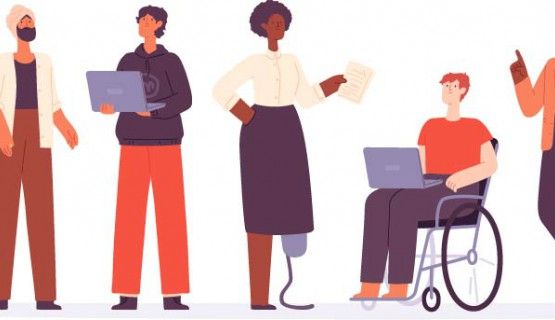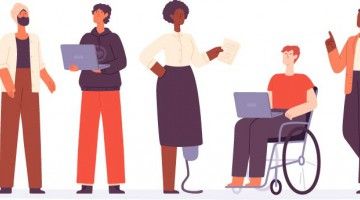Job accommodation
Job accommodations, through modifications or adjustments to job processes, work environments and/or work schedules, are a key component of stay-at-work and return-to-work programs that are designed to ensure workers with work- or non-work-related injuries or illnesses (physical or mental) are able to sustain their employment. IWH conducts a wide range of research in this area, exploring barriers and facilitators to successful job accommodation, as well as disclosure of disability and other complex issues surrounding the accommodation of injured or ill workers.
Featured

At Work article
Police service members face challenges with accommodation, communication and trust when returning to work after an injury
A recent IWH study examined the experiences of sworn and civilian Ontario police service members returning to their jobs after experiencing an injury or illness. It found their RTW challenges revolved around five main themes.
Published: September 18, 2023

At Work article
How government funding can best support the employment of persons with disabilities
What kind of government funding best encourages employers to hire and retain persons with disabilities? A research team at the Institute for Work & Health recently explored this question.
Published: May 4, 2022
Journal article
Journal article
A sensibility assessment of the Job Demands and Accommodation Planning Tool (JDAPT): a tool to help workers with an episodic disability plan workplace support
Published: Journal of Occupational Rehabilitation, January 2023
Journal article
Journal article
How does job insecurity and workplace activity limitations relate to rheumatic disease symptom trajectories in young adulthood? A longitudinal study
Published: Arthritis Care & Research, January 2023
IWH Speaker Series
IWH Speaker Series
Return to work in Ontario police services: Current experiences and practices
What challenges do members of police services, both sworn officers and civilian staff, face in their recovery and return to work after a work injury? In this presentation, IWH Scientist Dr. Dwayne Van Eerd shares what he heard from police members—those who were injured as well as those supporting return-to-work— in a qualitative study on return to work in Ontario police services. Using quotes and examples, he also offers suggestions on policies and practices that emerged from the data and that police services can implement to improve the return-to-work process.
Published: October 2022
Project
Project
Inclusive Design for Employment Access (IDEA): Evidence synthesis
As part of the IDEA initiative, IWH is leading an evidence synthesis component to identify needs/challenges, knowledge gaps and existing evidence-informed tools and promising practices related to IDEA's objectives.
Status: Ongoing

Research Highlights
Getting the message right: strategies to improve return-to-work communication
Communication is central to disability management—especially in large and complex organizations where multiple parties are involved in the return-to-work process and inconsistent practices can add to communication challenges. Workplace stakeholders in large and complex organizations use key strategies to effectively communicate about RTW. They include communicating messages of support, correctly timing RTW communication, carefully wording messages, framing messages and tailoring messages for individual workers.
Published: July 2022

At Work article
How government funding can best support the employment of persons with disabilities
What kind of government funding best encourages employers to hire and retain persons with disabilities? A research team at the Institute for Work & Health recently explored this question.
Published: May 2022
Journal article
Journal article
Workplace wellness program interest and barriers among workers with work-related permanent impairments
Published: Workplace Health & Safety, April 2022
Journal article
Journal article
Return-to-work after work-related injury in the construction sector: a scoping review
Published: Journal of Occupational Rehabilitation, February 2022
Journal article
Journal article
Language accommodations in workers' compensation: comparing Ontario and Quebec
Published: New Solutions, January 2022
Journal article
Journal article
Rheumatic disease disclosure at the early career phase and its impact on the relationship between workplace supports and presenteeism
Published: Arthritis Care & Research, January 2022